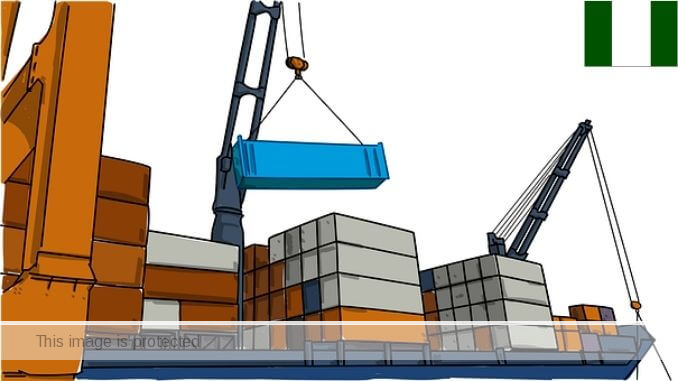How to Start Transport Business in Nigeria (Earn ₦50k Daily)
Do you want to read the PDF plan to start a Keke, Okada, Sienna, minibus interstate road transport business in Nigeria and earn money daily?
If YES, then this is the only post to read.
Like every other business that people do, the transport business in Nigeria seems to top the chart when we talk about daily money making.
The transportation business in Nigeria is a profitable venture; however, it involves many risks and challenges.
Starting the business will require a lot of funds unless you want to work with someone as a driver.
Do you know how to drive?
Do you enjoy driving?
If you do, then here is a lucrative venture to dive into and start smiling at the bank daily.
How Transport Business Works in Nigeria
Knowing how the transport industry in Nigeria works is essential to enable you to navigate the business world effortlessly.
One thing you need to know is that the transport business is of different types.
The first one is within the city’s passenger transportation.
This type of transport business in Nigeria enables you to convey passengers from one destination to another within a particular state.
It involves using taxis, minibuses, tricycles, which we call (Keke), and motorcycles (Okada), etc.
Another one is interstate passenger transportation.
The interstate transport type involves using high-quality buses of different styles to carry passengers from one state to another within the country.
Some people also use Sienna cars for this type of transportation.
The last one is freight transportation, which involves using trailers, trucks, vans, etc., to transport goods from one city to another and one state to another.
Once you understand the different transport businesses available, you’re on your way to making money through the business.
Is Transport Business Lucrative?
The transport business in Nigeria is very lucrative, based on certain factors like population, location, how much you know your way around the city or state you’re in, etc.
When we talk about population, if you are in the transportation business in a well-populated city in Nigeria, you intend to make more money than a person in a state with a smaller population.
Let’s take Lagos state, Anambra, Port Harcourt, and Kano, for example.
There is a higher demand for transportation in these states because of the population and economic activities.
Steps to Starting Transport Business in Nigeria
Here are the steps to start a profitable transport business in Nigeria:
1. Market Research
Conducting detailed market research is essential before starting a transport business in Nigeria.
Through the research, you will find out how the transport business in Nigeria works, pricing strategies, the different transportation available, etc.
The research will open you up to other means of making money in the transport industry.
2. Decide on the Transport Business Model
You already know the different transport business in Nigeria.
Choose the best one for the type of business you want.
When selecting the one to narrow down to, consider your budget.
Your budget is one of the major determinants of the type of transport business you should go for.
3. Get Your Funds Ready
The transport business is expensive to build except if you want to work as a driver for someone else or a company.
If not, source for funds that will be enough to set up the type of transport business you want.
You can borrow from family and friends or, better still, go to the bank for a loan or a partnership.
4. Permits and Licenses
It’s essential, if not compulsory, to get all the licenses and permits for the transport business before starting.
First, secure a driver’s license, and when you get the vehicle ready for business, go back for all the paperwork.
Don’t start working without all the legal backing to avoid harassment from law enforcement agencies.
5. Purchase Business Items
Buy all the equipment you need for a transport business in Nigeria.
If you are starting a big transportation business, you need more than one vehicle.
So, buy all you need for the business and start.
6. Hire Staffs
Someone who doesn’t know how to drive and doesn’t want to learn to drive can open a mini or large transport business in Nigeria.
Here is where hiring staff comes in.
Hire experienced drivers and other people who can help you manage the business.
You can hire customer care representatives, expert drivers, mechanics, and dispatch riders.
If you want to run a taxi company, you need someone knowledgeable with technology too.
7. Provide Good Customer Service and Market Your Business
Start marketing your business.
Run paid advertising print banners and mount them in some strategic places; flyers will also go a long way.
Make sure you employ good workers so you can offer your customers exemplary customer service.
Transport Business Risks
The high profitability of the transport business in Nigeria notwithstanding, the industry still experiences some major and minor challenges, which include:
- High cost of maintaining vehicles.
- The consistent rise in fuel prices in the country.
- Taxation and extortion by some police and road touts.
- Bad road.
- Lack of security in the country.
- The competition in the industry is high as well.
Steps to Ensure Your Passengers and Vehicles are Safe
You can ensure your passengers and vehicles are safe by purchasing a good-condition car.
Always use a suitable mechanic’s workshop for maintenance.
If you’re not the one driving the vehicle yourself, be sure you hire excellent drivers.
Ensure your drivers keep to the rule of “don’t drink and drive.”
Find a good insurance company and insure your vehicle.
Buy motor insurance policy, fire insurance, accident insurance, and theft insurance.
Always pay and do not breach the contract, so you can be repaid for any unforeseen occurrences.
Mini-Bus Drivers Daily Earning in Nigeria
Minibus drivers make as much as ₦10,000 to ₦100,000 daily, depending on their location and the population of people living around the place.
Some minibus drivers make way higher than we started above, and it’s only possible if they take their time to learn about the industry very well before diving into it.
Transport Business Cost
Starting a thriving transport business in Nigeria will cost you a lot of money.
The cost of starting a transportation business in Nigeria varies depending on several factors, including the type of transportation business you want to start, the size and scale of the business, and the location of the business.
Sometimes, where you only want to become a driver under a company, it will only cost you money to get a driver’s license.
Starting an interstate transport business in Nigeria will cost you around ₦5 million and above if you are going for a high-quality bus.
Intrastate transport business in Nigeria costs less because you may decide to go for Tokunbo vehicles.
So, you can get a car for ₦1.5 million and above.
Some use hire purchase vehicles to start.
You can start riding Okada with as low as ₦10,000 for fairly used ones.
Just know that they don’t go a far distance.
The price of tricycles has been alarming recently..
You can get a fairly used one for ₦1 million plus or opt for a ride as you pay.
Conclusion
Understanding an industry or business before getting into it is essential to save you time, stress, and loss of funds.
The transport business in Nigeria is very lucrative, but requires you to learn how it works and be patient before diving into it.
If you are interested in the industry, look out for those who have been into it for years and learn from their experiences.
Aside from the profits in the transport business in Nigeria, there are so many risks involved.
Get your mind prepared for all that comes from the industry.
READ ⇒ 71 Legit Ways to Earn Money in Nigeria (Online and Offline)






